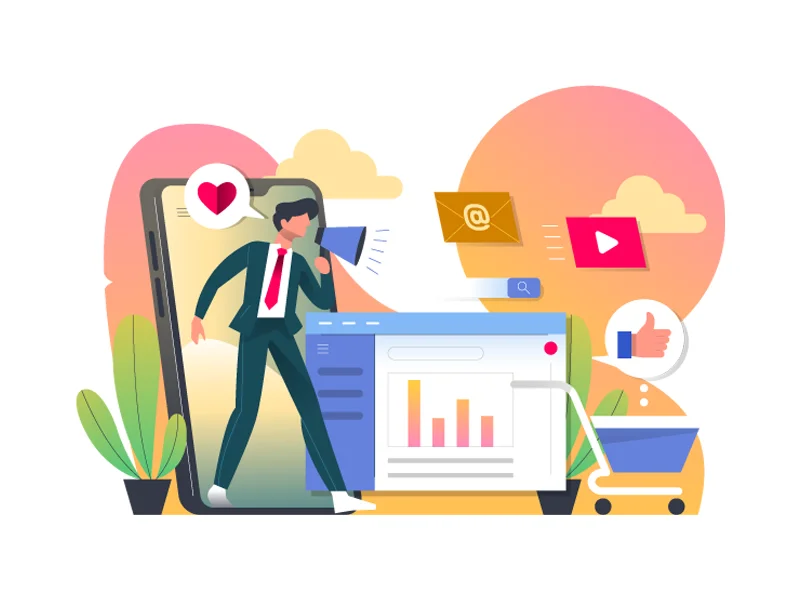

POST COVID 19: A DIGITAL ERA
INTRODUCTION:
The coronavirus crises initially detected in China have
infected and devastated people across 185 countries. Its expansion has left
brands and businesses around the world counting their survival costs and borderline
rates.
Global shares do a big hit.
Big changes in stock markets, where stock and shares in
businesses are purchased and sold, can affect the rate of pensions or
individual savings accounts (ISAs). Investors are worried that the spread and
circulation of the coronavirus from person to person will destroy and deplete
economic growth and that government action may not be sufficient to stop the
decline and deadlock.
In response, central banks in most nations, including the
United Kingdom, opened up their interest rates beyond imagination. But few
analysts have notified that they could be fragile until the pandemic is
obtained.
More people searching for work
In the United States, the number of people or crowd
filing for unemployment boost a record high, signalling a deadline to a decade
of expansion for one of the world's biggest economies.
Approximately one million people in the United Kingdom
also tried for the advantages in just two weeks at the end of March.
Oil prices crash
Oil demand is very high, but it slowed down as lockdowns worldwide have kept people inside. Brent crude is the mark made by Europe and the rest of the world. Its price dropped below $20, to the lowest level observed in 18 years.
Risk of recession
If the economy is rising, that generally means good and a
wealthy nation and a newer job. It's determined by calculating the percentage
shift in the gross domestic product, or the value of products, goods, and
services produced, typically from three months to a year.
But the International Monetary Fund (IMF) claims that the
world economy will reduce by 3% this year.
Although it analyzed that the coronavirus has shrunk the
world into a "crisis like never before", it does want economic growth
globally to pick up to 5.8% next year if the pandemic reduces its effect in the
second half of 2021.
Turn to technology
Governments around the globe have requested employees to
work from home wherever and whenever situations are acceptable. Shares in
technology businesses such as Zoom have boosted up to a different level as more
people rely on video conference calls and email to manage meetings or get
official and personal tasks done.
The want for online shopping and entertainment has also
shot up high as people keep themselves indoors. Amazon's share prices to a
different level of heights.
Travel among the hardest hit
The travel industry has been hugely drained down, with
airlines cancelling flights and customers shrinking up business trips and
holidays. Governments around the globe have introduced travel restrictions and
new regulations to try to reduce the cause and effect of viruses.
IMPORTANCE OF DIGITAL MARKETING:
Covid-19 pandemic has re-arranged our regular routines.
Social distancing is the new trend, and the internet has played a critical role
in making us connected to our beloved who are far and the outside world.
People are giving more time online today, more than ever.
According to Forbes' preliminary analysis and statistics, internet strikes have
raised by 50% to 70%. An analysis of media consumption announces that online
media intake has increased by greater than 4 hours since the COVID-19 lockdown
compared to the average of 1.5 hours in the pre-corona times.
Businesses are eager to witness a paradigm shift in the
shopping nature of millions of households as the pandemic will shift more and
more buyers to go online. An article written by live mint features statistics
from a survey conducted by Capgemini Research Institute, which says that
consumers will seek convenience in the name of online shopping going forward.
Concerns and interest around health and safety will become a major issue of
thought as "they will expect safer in-store and not out store and last
tile exercise".
With end to end-users prevailing indoors and providing
more time on digital channels and platforms, it makes sense to transform the
target of your marketing strategies from traditional and old techniques and
sources of print and outdoor activities to digital, mobile, and modern
campaigns.
The advantages of digitally shifting your marketing and
advertising are not an ear holding anymore. A data-oriented and
information-keeping approach keep it easier to judge and define your target
audience and potential customer. You can customize marketing advertisements and
campaigns to target a specific customer set and get a good ROI. Settling the
budget decided for a campaign is possible with just the click of your cursor.
Such flexibility and adjustment are not possible in old or traditional
marketing techniques.
If you haven't experienced the potential or calibre of
digital marketing, now is the proper pace to do so. And, for businesses and
companies that are already a bargaining chip for the power of digital, now is
the time to target expanding and increasing your reach, if not revenue. It is
also a remarkable opportunity to entire with your audience and customers, both
existing and potential, at an insight level with the help of blogs.
Data and analysis from Hubspot say that businesses and
companies that publish and post blogs as marketing means get approximately 55%
more website visitors as varied to those that don't.
In marketing, communication and the transfer of thoughts
are the keys! Now is the time to join wisely with your customers or audience
using the capabilities of digital marketing.
Life in the time of COVID 19:
It might be a little fragile, but here's an overview of
what is to arrive in the coming future. Liquidity is assumed to be tight and
tough as the cost of borrowing in actual terms will jump upwards. It is despite
central banks' try to minimize interest rates. Banks and financial institutions
will be under ultra-stress and pressure as the tension of NPAs, insolvency, and
bankruptcies upgrade multifold. The government will target the high demand for
imported goods, while less important companies and businesses will target
recovering their receivables/outstanding money due from debtors. New strategic
allocations or business partnerships will not combine during this period.
Adversely affected Sectors
Apparel & Textile will be heavily pushed down and hit
adversely due to disturbance in labour supply, less availability of raw
material, working capital constraints, and less demand due to limited migration
of people around and purchasing capability.
The auto sector (which involves automobiles and auto
parts) will face challenges on account of the scarcity of demand, worldwide
recession, and reducing income levels.
Aviation & Tourism is one section among various
sectors with the maximum probability of moving under without direct government
intervention. In the coming year or so, it's greatly unlikely that citizens
will travel for recreation apart from very necessary travel.
Shipping and Non-Food Retail: Non-food retail chains
and world shipping companies and businesses will search these 12 months very
challenging.
Sectors with a possible uptick
Digital & Internet Economy: Online based goods,
products & services businesses will have to search for new takers.
Ed-tech and Online Education along with firms and
companies involved with online-skill orientation and development.
FMCG & Retail will rise immensely. With prolonged
fear, food-based retail chains and firms catering to low-ticket consumption
demand will emerge as champions.
Speciality Chemicals: Companies dealing in
Chemicals will observe a rise due to lots of demand for disinfectants, drugs,
and medicines.
Pharma: Pharmaceutical businesses are set
to observe an enhancement in the near term.
Peering into the Future
Many people will lose themselves and millions more
affected. Nations will introspect, companies will realign. But as Jackie's
21st-century take on turning lemons into lemonade goes, there is a hope to have
a silver lining.
Technology & Future of Work
Technology for many companies and firms, until today, was
determined to be a support system with it being utilized as a means to get to
an end. It is set to transform as technology will now become the frontline need
in most organizations or firms.
Its necessity will be comparable to that of
revenue-generating actions – sales and business up-gradation and development.
Trends will boost to a new level. Automation will rise in
momentum as the exploration in giving on sophisticated IT infrastructure
outpaces natural resources. The job is fixed, with more offers being circulated
out on a contractual basis than on a full-time segment. This type of gig
economy will settle in the emerging markets as well as the more established
markets. Companies in few sectors will understand that employees doing their
job from home are equally productive and beneficial compared to when they are
working from the office. It will be a great benefit in saving infrastructure
costs.
Back to basics
Businesses and firms will try to reframe their strategy
of boosting sales without profitability growth. Companies claiming hefty
valuations and numberings based on sales growth will no longer get buyers –
target on profit and profit growth will be the latest trend.
Data is the new oil
Data will become even more important and valuable, and
with it, data and information misuse through AI will also become a new topic of
concern. We're already observing governments and private entities roll out
contact tracing tools and services with bad implementation and pose severe
threats and concerns to data security and privacy. As these entities have
understood, data can play a vital role in fixing the impact of viral phenomena
– diseases, protests, misinformation…. The list continues to go on.
Data and IT security will become even more vital for
businesses and firms. Traditional companies and firms, including heavy
industries and factories, will find it very tough to live without access to
data and information required to help with optimization and extracting
efficiency.
Human Attitude towards closed doors,
open windows culture:
With the Indian government relaxing and retaliating terms
and conditions to initiate work from home (WFH) at this pace, the
COVID-19-prevailing trend is set to continue after the lockdown. It could well
be one of the most efficient takeaways from the worldwide business lockdown
trend.
While WFH is across the latest trends and modernity and
the pace of the moment and will continue in some type or the other
post-lockdown, it is the IT and BPO firms that have been the big takeaways in
the whole trend.
Beyond the IT sector, firms and companies in other
sectors, too, have adopted WFH wholeheartedly. It has been especially justified
of firms in different auras like Finance, Health, media, and entertainment.
It seems very clear that WFH will be the 'latest trend'
or 'new trend' as businessmen call it. After the commencement of lockdown,
managers and professionals seem to have eased into this type of work.
Firms have also been told to continue WFH due to two
major practical facts. One is that social distancing needs would mean that
companies can only be managed by up to 50 per cent or less of their workforce
in the coming future. Second has been a common thought that employee
productivity and calibre have not reduced, as was drowned and doubted by many
managers and sectors, even as accountability and outcome have been far better.

